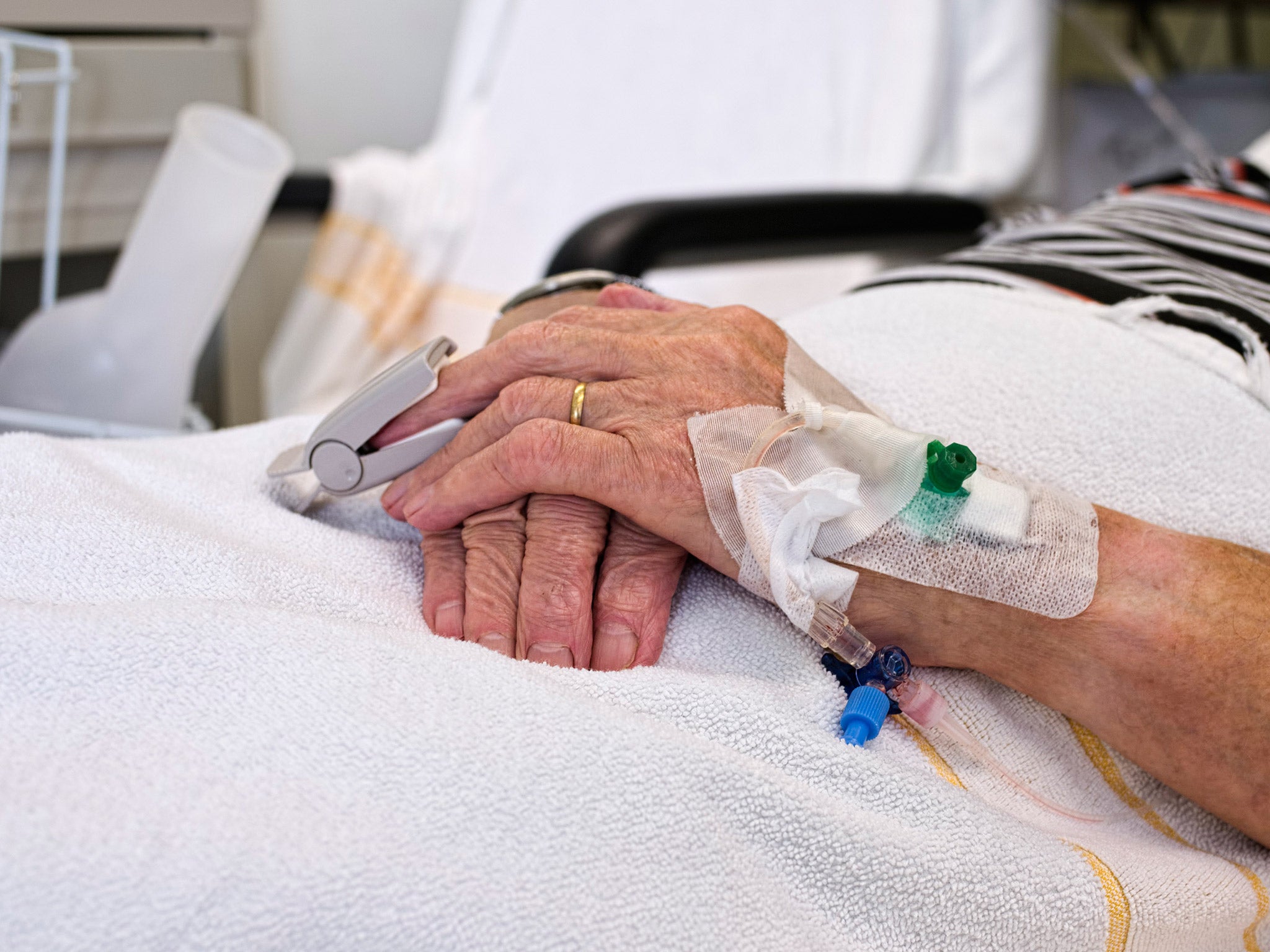Dying patients should be offered water in their final hours, new guidelines say
End-of-life guidance aims to support healthcare professionals in giving consistent clinical care to people in their final days

Your support helps us to tell the story
From reproductive rights to climate change to Big Tech, The Independent is on the ground when the story is developing. Whether it's investigating the financials of Elon Musk's pro-Trump PAC or producing our latest documentary, 'The A Word', which shines a light on the American women fighting for reproductive rights, we know how important it is to parse out the facts from the messaging.
At such a critical moment in US history, we need reporters on the ground. Your donation allows us to keep sending journalists to speak to both sides of the story.
The Independent is trusted by Americans across the entire political spectrum. And unlike many other quality news outlets, we choose not to lock Americans out of our reporting and analysis with paywalls. We believe quality journalism should be available to everyone, paid for by those who can afford it.
Your support makes all the difference.Dying patients should be given water in their final hours if they wish and are able to drink, according to new NHS end-of-life guidance published today.
The National Institute for Health Care Excellence (Nice) says the hydration of someone deemed to be “two to three days” from death should be assessed daily to review if they require fluids through a drip – with the risks of assisted hydration, and of drinking water, explained.
The guidance aims to support healthcare professionals in giving consistent, compassionate and high-quality clinical care to people in their final days. It is focused on care needed when a person is judged by the clinical team to be within two to three days of death, which differs from other NHS “end-of-life care” initiatives aimed at improving care for people in the last year or so of a chronic condition.
It replaces the Liverpool Care Pathway which was phased out last year after a review found serious failings in how it was implemented. In the worst cases some people described how frail relatives had to suck on sponges they had been given to wet their mouths in an attempt to get fluid, when fluids had been deliberately withheld.
Sam Ahmedzai, a professor of palliative medicine and chairman of the independent committee of experts who developed the Nice guideline, said: “The Liverpool Care Pathway was originally developed to help the NHS provide ‘a good death’ for people.
“However, its implementation became increasingly controversial over the years with stories of fluids and medicines being withheld, over-sedating the dying person.
“There were also problems with inexperienced staff recognising when someone was truly close to death, or if they had a possibility of recovery. It became seen as a ‘tick-box exercise’ and a ‘one-size-fits-all’ approach. The Nice guideline addresses these issues and gives professionals a comprehensive, humane and evidence-based framework for giving dying people and their families the best possible care based on each individual’s needs and wishes.”
Individualised care plans for dying people should now be created, the guideline states. Central to the plans is establishing as early as possible what is needed for the dying person, such as the delivery of meals, equipment, care at night, volunteer support or assistance from an organisation and their availability. In discussion with the dying person, their loved ones and healthcare professionals, the plan should include the patient’s wishes, and where they would prefer to be cared for.
The most recent National Survey of Bereaved People, published annually by the Office for National Statistics, showed that approximately eight out of 10 people whose relatives died in hospices (83 per cent), care homes (82 per cent) or their own home (79 per cent) rated care as outstanding, excellent or good. Significantly fewer people (69 per cent) whose relative or friend died in a hospital rated care in the same way.
About half a million people die in the UK each year – with roughly 75 per cent being expected deaths. A recent report, by the Economist Intelligence Unit, ranked the UK as having the best end-of-life care in the world, but also outlined areas where improvements still need to be made.
It will help doctors, nurses and other healthcare professionals recognise when a person may be entering the last days of their life, or if they may be deteriorating, stabilising or improving. It also sets out what information should be recorded and signs to look out for which may indicate if the person is recovering or deteriorating.
Professor Gillian Leng, deputy chief executive of Nice, said: “How we are cared for can make a big difference to our final days. Looking after people who are dying can be challenging and our new evidence-based guideline will support doctors, nurses and other healthcare professionals to provide the best care possible for every patient.”
Sue Hogston, chief nurse at Sue Ryder, said: “All NHS front-line staff need robust training and education on how to deliver good of end-of-life care and in developing the communications skills needed to ensure that people and their loved ones have as good a death as possible.”
Join our commenting forum
Join thought-provoking conversations, follow other Independent readers and see their replies
Comments